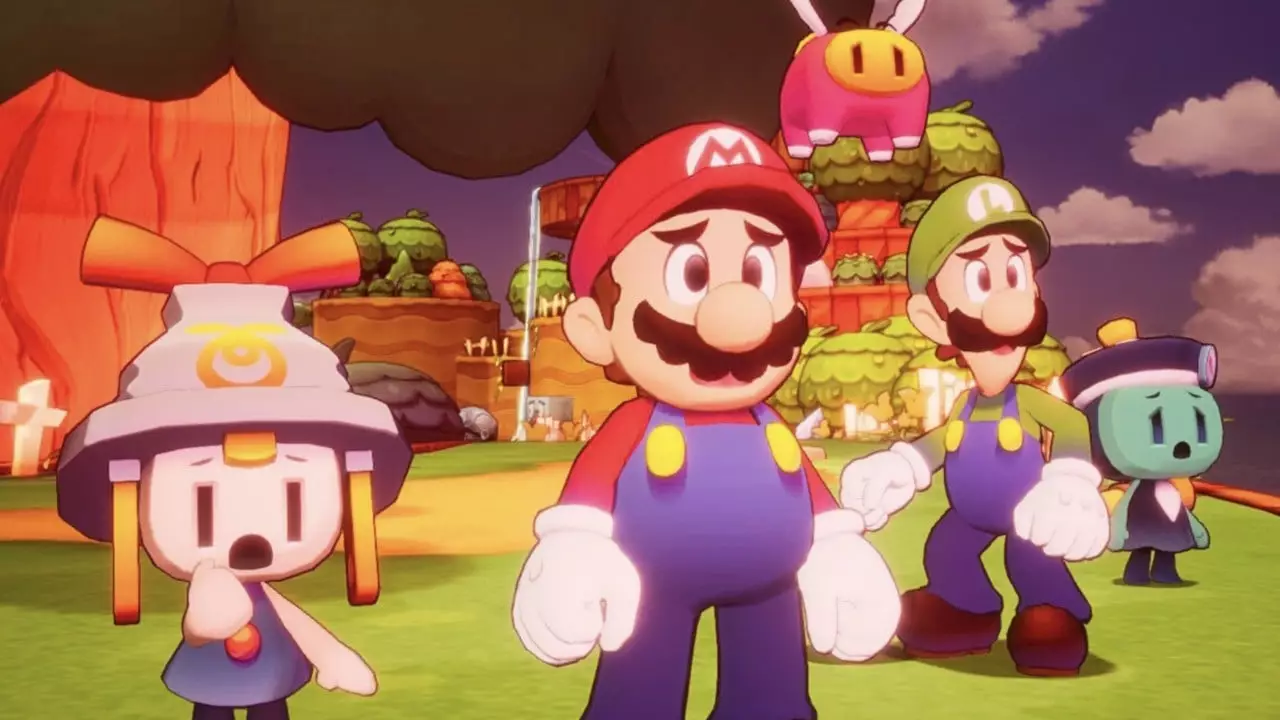In the vibrant and ever-expanding landscape of video game development, name selection can often become a daunting task fraught with possibility and limitation. Recent revelations about the collaboration between developer Acquire and Nintendo for their upcoming RPG, originally brainstormed with over 100 potential titles, illustrate this complex landscape. Among these titles was a contender that would have altered the game’s branding considerably: “Mario & Luigi Wonder.” However, due to timing and overlap with another game, that idea was shelved, leading to the final title “Mario & Luigi: Brothership.”
The backstory provided by producer Akira Otani highlights a noteworthy situation in which both creativity and market relevance collided. Otani’s intention to embed the word “Wonder” in the title was dashed when Super Mario Bros. Wonder launched, thus forcing the team to rethink their approach. This timing raises questions about how closely developers keep tabs on one another’s projects, particularly within the same franchise. Conclusively, the interplay of release dates among titles can create unintended ramifications, influencing brand identity, marketing strategies, and perhaps even sales performance.
The Nuances of “Brothership”
Acquiring a suitable title goes beyond merely selecting an appealing word; it encapsulates the essence of the game itself. The chosen name “Brothership” possesses a dual significance: it symbolizes the partnership between Mario and Luigi while simultaneously resonating with themes of camaraderie, suggesting both a literal and metaphorical exploration of brotherly bonds. The clever wordplay also enriches the narrative potential of the game. It encourages players to explore not just gameplay mechanics but also the emotional depth of the characters’ relationship.
Development Dynamics and Communication
The implication that the teams working on “Mario & Luigi: Brothership” were unaware of Super Mario Bros. Wonder until its release is curious. Given that Takashi Tezuka—a key figure deeply entrenched in the Mario franchise—was involved in both projects, it seems unlikely that there was no overlap. This peculiarity opens a window into the communications intricacies within large gaming studios, where different teams may operate under tight-lipped conditions to maintain secrecy. Nonetheless, it’s a humorous twist that evokes discussions on organizational structure and collaboration.
Now that the title “Brothership” has been cemented, many fans are left pondering the merits of the abandoned title “Wonder.” While “Mario & Luigi Wonder” might have captured a whimsical essence befitting the Mario franchise, its potential to create a convoluted marketing message cannot be overlooked. In a market flooded with varied interpretations of the word “wonder,” the developers’ eventual choice resonates more cohesively with the game’s themes. Ultimately, it underscores the delicate balance in game development between creativity and strategy—a task made even more challenging by the interconnections within the franchise.
In summation, navigating the whims of creativity against a backdrop of market considerations often leads to fascinating insights, as evidenced by the title evolution of this highly anticipated game. The journey from “Wonder” to “Brothership” reflects the intricate dance of collaboration, context, and creativity that defines the world of game development.

